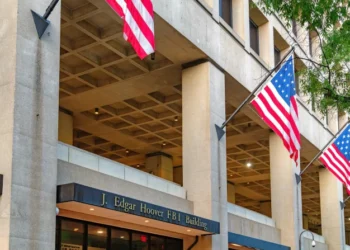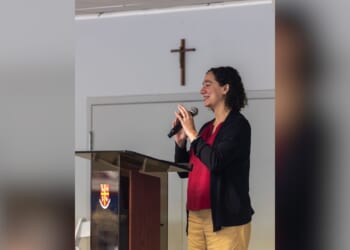A brother priest in my religious congregation was in a terminal stage of cancer some years ago. When asked by another of our confreres how he was doing, he wittingly replied, “Well, I am hanging in there. You know, there are worse things in life than dying.” He passed away a few weeks later. But I cannot forget his words about death not being the worst thing.
We all agree that death is a terrible tragedy. That violent separation of the soul from the body, the pain of saying goodbye to loved ones, the certainty of our own deaths with its unpredictable timing, and the great mystery of what lies beyond the grave – all these and more make death a mysterious and terrible thing.
So, what can really be worse than dying? One thing that is definitely worse than dying is to die without being in a state of grace. This is a tragedy that is worse than death itself because we cannot hope to see the face of God if we die without being in a state of grace. This is the tragedy that Jesus warns us about when He said, “What does it profit a man to gain the whole world and lose his soul?” (Mk. 8:36). Our souls are eternally lost if we leave this world without being in a state of grace.
Four things are implied in being in a state of grace.
We are in a state of grace when we are friends of God in Jesus Christ.
Jesus, our friend, lovingly accepts us no matter our sins and sufferings, because He sees us as the Father’s gift to Him, “Everything that the Father gives me will come to me, and I will not reject anyone who comes to me.” He will not reject us, but He will purify us as He does the faithful souls in Purgatory so that they will become pure enough to live with Him forever, “The souls of the just are in the hands of God” (Wis. 3:1).
Do we live our lives as persons unconditionally loved and accepted by Jesus Christ? Do we value His friendship with us above all things? Do we accept His love, will, and truth as He accepts us? Does this friendship affect our choices and actions today? Do we allow Him to purify us for greater communion with Him?
Jesus, our friend, also holds on to us as precious gifts, explaining, “And this is the will of the one who sent me, that I should not lose anything of what He gave me, but that I should raise it on the last day.” Jesus will do anything to keep us eternally safe in the hands of His Father.
Do we live our lives with that deep faith that we are always held tenderly in the loving hands of God, both in life and in death?
Jesus, our friend, also assures us that we will share in His resurrection, saying, “For this is the will of my Father, that everyone who sees the Son and believes in Him may have eternal life, and I shall raise him on the last day” (Jn. 6:37-40).
Are we aware that our friendship with God in Jesus Christ will endure beyond this life? Does His assurance of raising us from the dead move us to greater fidelity to Him in this life? Does this promise of resurrection help us to face death and suffering today with confidence in Jesus?
It would be a great tragedy for us to still leave this world without a fervent friendship with Jesus Christ.
We are in a state of grace when we have the grace of our baptism alive in us.
We all received sanctifying grace at Baptism. This is the grace that makes us truly pleasing to God as His beloved children. We are brought into communion with God and truly share in His divine nature and life by this grace. This grace is meant to grow throughout our lives through prayer, sacramental life, and holy living.
Are we in touch with the grace of our baptism? Are we nurturing this sanctifying grace in us, or are we taking it for granted? Do we make choices that nurture this grace or destroy this grace? Are we in touch with the new way of life that this divine grace demands from us, or are we living worldly lives? As St. Paul writes, “We were indeed buried with Christ through baptism into death, so that, just as Christ was raised from the dead by the glory of the Father, we too might live in newness of life” (Rom. 6:4).
What a tragedy to die without having sanctifying grace in our souls.
We are in a state of grace when our hearts are full of charity.
We are in a state of grace when we are maturing in our love for God and our neighbors, for God’s sake. An active charity increases the sanctifying grace in us. This is why Jesus declared that the kingdom belongs to those who perform acts of charity to others for His sake: “Whatsoever you did for the least of these, you did for me” (Mt. 25:40).
How active is our charity? How are we struggling to master our selfishness and cultivate our charity? What are we ready to do and endure out of love for Jesus, who died for us? How do we find ourselves loving only those who are pleasing to us or those whom we can benefit from? How resolved are we to do good for all out of love for Jesus?
Again, it is a great tragedy to die without fervent charity in our souls.
We are in a state of grace when we are free of all mortal sins.
Mortal sins are the sins that are of grave matter, and committed with full knowledge and consent. Mortal sins completely destroy sanctifying grace in our souls. Souls with mortal sins are completely deprived of the life of God in them and are enemies of God. They have no chance to be in the presence of God in heaven.
What is our approach towards all sins, especially mortal sins? Do we make excuses for our sins and justify them? Do we allow the world to teach us how to ignore the dangers of mortal sin? Are we learning from the world how to indulge in sinful bodily pleasures and even celebrate them while our souls languish in mortal sin? Do we examine our consciences carefully to know when we are playing with grave sins? Do we flee from the near occasions of sin? Do we make frequent use of the sacrament of Reconciliation, that powerful means of complete cleansing from mortal sin and restoration of sanctifying grace?
There is no greater tragedy than leaving this world with mortal sins in our souls.
We must be reminded today that the principal mission of the Church is to prepare us all to live in a state of grace all the days of our lives and to leave this world ready to be received into our heavenly home. This is the commission that Jesus gave to His Church: “Go therefore and make disciples of all nations, baptizing them in the name of the Father and of the Son and of the Holy Spirit, teaching them to observe all that I have commanded you” (Mt. 28:19-20). The preaching of saving truth, the offering of the sacraments, and the invitation to all to the holiness of life must be the Church’s primary mission.
I doubt if the Church is still serious about living in a state of grace today when it would offer Holy Communion to those in adulterous relationships and offer “same-sex” blessings to those in homosexual relationships. The Church fails in her duty to maintain souls in a state of grace when she fails to preach Jesus Christ and His unchanging truth with consistency and coherence. The Church becomes useless in building God’s kingdom when she condones sin and allows her children to live without being in a state of grace. The Church is unfaithful when it is silent in calling all to live in a state of grace, but very vocal when it comes to climate change and immigration.
We, too, personally must make living in a state of grace our primary goal. Sometimes we are so preoccupied with daily tasks and events in our families, countries, Church, and world, that we forget the big picture of our immortal souls and their eternal destiny. We easily ignore the great duty to keep our souls in a state of grace. We will surely lose our souls eternally if we die without being in this state of grace.
We can pray today for all the faithful departed only because we have hope that they died in a state of grace. Thus, we call them the faithful departed. We have hope because of their friendship with Jesus Christ, His promises of eternal life, and His love and saving grace in their lives.
Each Holy Mass is an encounter with Jesus, our friend, who “raised from the dead, dies no more.” His victory over death reminds us that death itself can be conquered by His power. He gives us His grace and love so that we may live in a state of grace always. Let us beg for the grace to persevere in this state of grace all the days of our lives.
Let us also ask Mary, the one who is always and forever “Full of grace.” No one received and responded to God’s grace like Mary did. She, the Immaculate Conception, can keep us in that state of grace. Let us pray the Hail Mary fervently, begging her to pray for us at the two most important moments of our lives, “now and at the hour of our death,” so that we can live every moment of our lives and die in a state of grace.
If, after all that Jesus does for us and Mother Mary offers to us, death still finds us not in this state of grace, that is the greatest tragedy, a tragedy worse than death itself.
Glory to Jesus!!! Honor to Mary!!!
Photo by Josh Applegate on Unsplash












